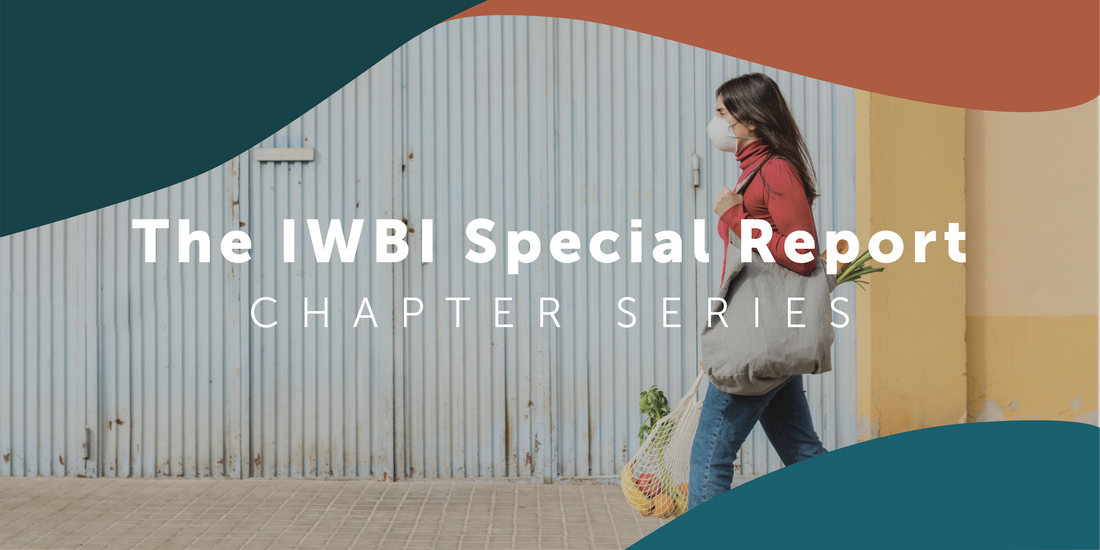The IWBI Special Report Chapter Series: “Hard Hit by the Pandemic, Hotel and Hospitality Sector Embraces Well-Being As More Than an Amenity"

By Tori Shepherd
In 2021, IWBI released an in-depth report that lays out research approaches and specific operational strategies as the world continues to respond to the COVID-19 pandemic and prepares for acute health threats into the future. Prevention and Preparedness, Resilience and Recovery: An IWBI Special Report integrates proven strategies from the WELL Building Standard (WELL) and actionable insights garnered from IWBI staff and nearly 600 members of the Task Force on COVID-19 and Other Respiratory Infections.
We’ve been reposting chapters from the report to help highlight specific themes and insights. The IWBI Special Report Chapter Series continues with “Hard Hit by the Pandemic, Hotel and Hospitality Sector Embraces Well-Being as More Than an Amenity,” authored by Tori Shepherd, WELL Faculty, LEED Green Associate, Manager, Commercial, APAC Region.
Excerpt republished from: Prevention and Preparedness, Resilience and Recovery: An IWBI Special Report
Daniel Ordoñez is the director of engineering at the W Hotel in Barcelona. And for a while, he was also the hotel’s only guest. For months, he maintained the space singlehandedly, checking the ventilation and testing the pool water, readying the rooms for when it might be safe for people to return.
Hotels and resorts may not be occupied at pre-COVID-19 levels until 2023, by some estimations. But in the months and years to come, the rooms could steadily fill up with guests again—provided that the hospitality industry can demonstrate that health and well-being are their top priorities…
Excerpt: COVID-19: The Unwelcome Guest
As a result of the pandemic, most people chose to self-quarantine in order to protect themselves and reduce the spread of the virus to others. But even if they wanted to, for many, traveling has simply not been an option. Border restrictions are still preventing people from crossing international lines, and at the height of the pandemic, even some domestic lines. Business travel ground to a halt, with very few companies asking their employees to take the risk.
The pandemic hit the hospitality industry hard, with devastating impacts on hotel and resort revenue around the world. International tourism fell 65 percent in the first half of 2020, a rate that remained steady through the end of the year. And by June, three months after the pandemic took hold in the United States, nearly 8 out of 10 hotel rooms sat empty.8 As long as staying safe meant staying home, hotels remained largely vacant…
Excerpt: Welcoming Guests with Well-being on their Minds
Traditionally, guests have booked rooms at hotels and resorts based on the experience they hope to have. Maybe they were looking for a beautiful view, a quality cocktail bar or a state-of-the-art gym.
Going forward, one of the most important factors customers will consider is their health and well-being. Guests will choose places they trust, where they feel safer and more confident their health is prioritized. Hotels with the most comprehensive—and best-communicated—plans to combat the spread of COVID-19 will stand out in the minds of consumers and the marketplace…
Excerpt: More Rooms, More Room to Innovate
As occupancy will likely remain relatively low for some time, hotels can repurpose certain spaces in innovative ways. For example, some have started converting empty guest rooms to more socially distanced spas or private dining spaces. Meanwhile, as companies shift to a “work-from-anywhere” system, some hotels are redesigning spaces to be more conducive to working and pivoting to provide flexible office space and temporary leases to businesses reluctant to lease an office long-term.
Still others are redefining hospitality and serving their communities by offering rooms as isolation centers for quarantined arrivals, or as safe spaces for frontline workers and people experiencing homelessness. In Australia, some hotels have opened empty rooms to house survivors of domestic violence…
Conclusion
Millions of people have been stuck inside their homes during COVID-19 and are beginning to cautiously venture out. As they do, health and well-being will be top of mind—and hotels and resorts have been preparing for that moment.
If hotels are transparent about their strategies and communicate effectively with potential customers, they can build trust and brand loyalty to bring customers back. After all, hotels aren’t meant to be empty, and if the hospitality industry takes steps to prioritize health and safety, those vacant rooms will start filling up again soon.
Read the full section here.

